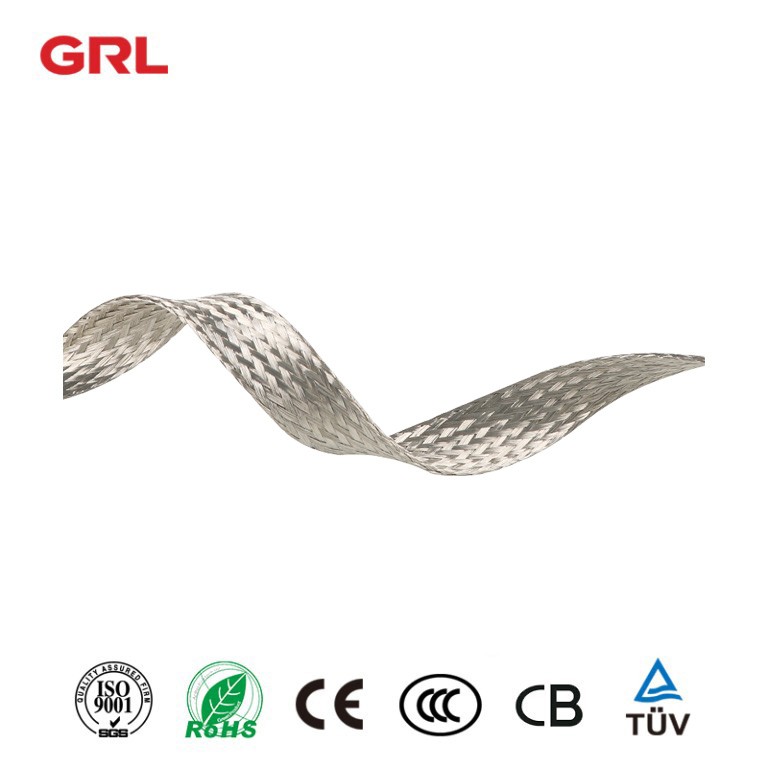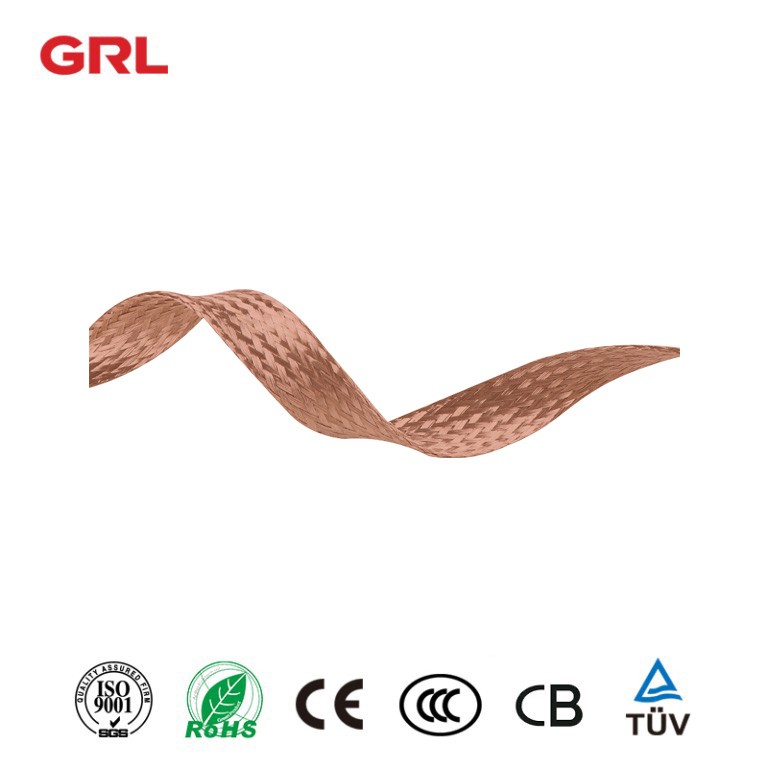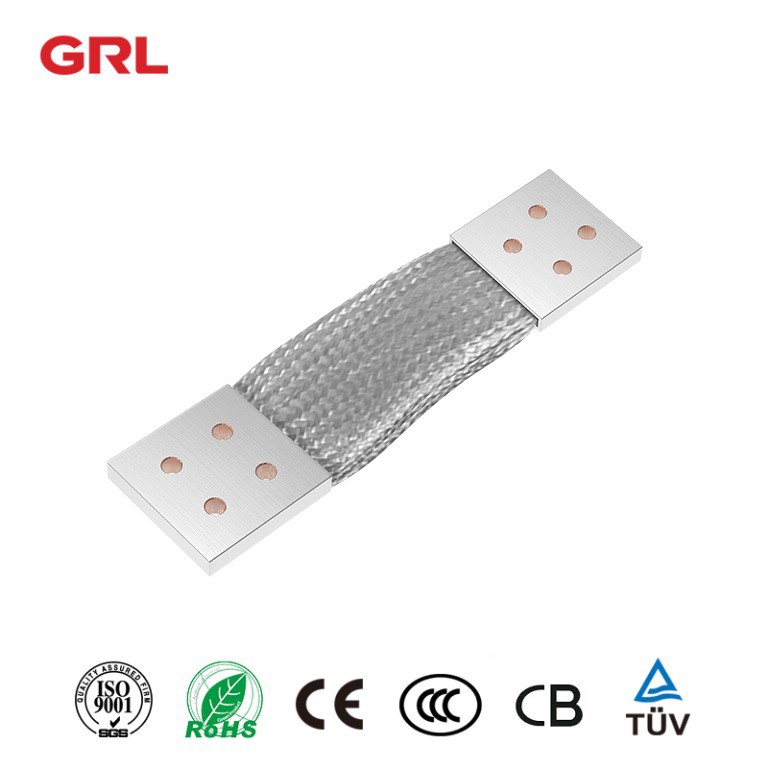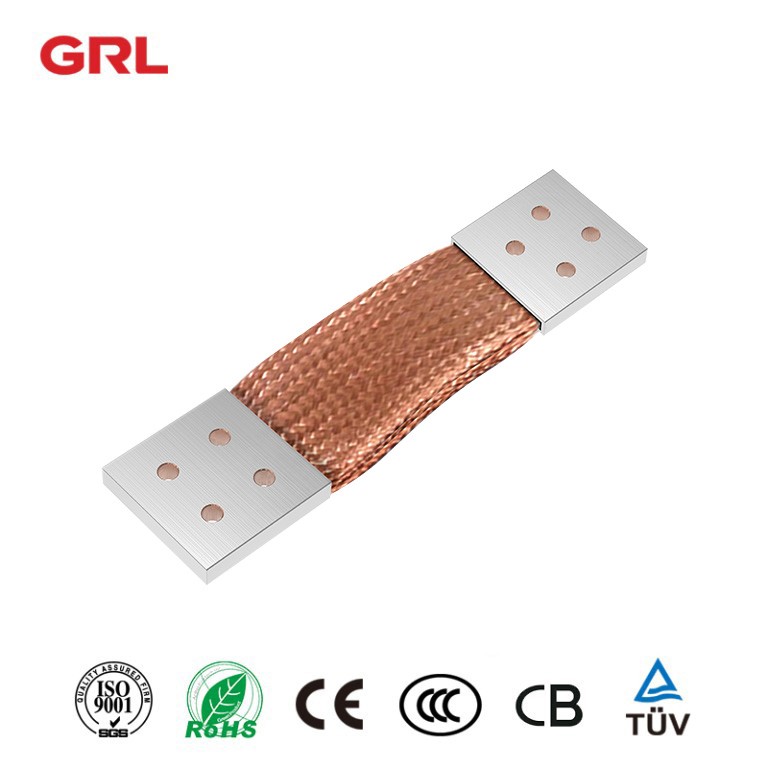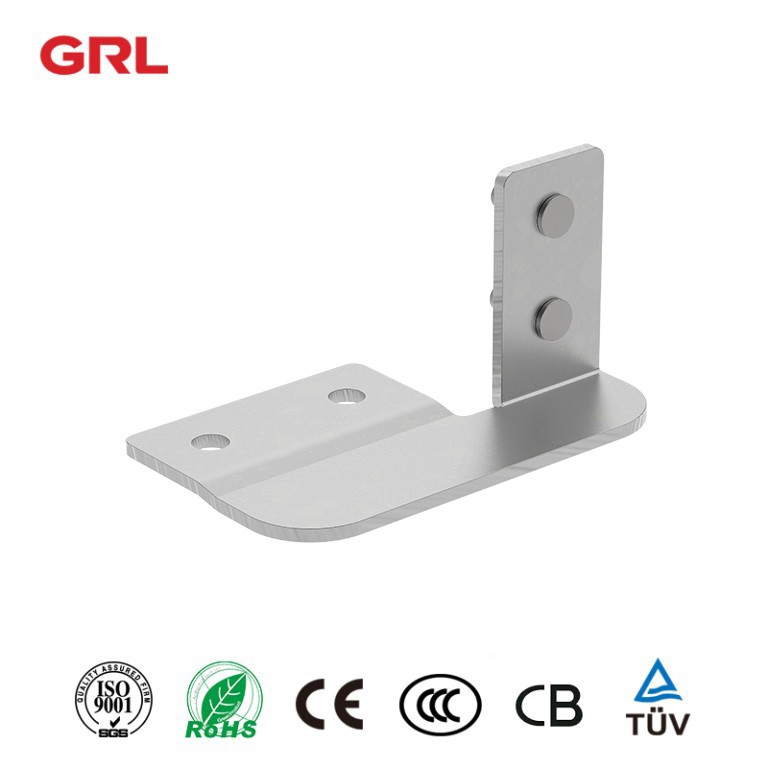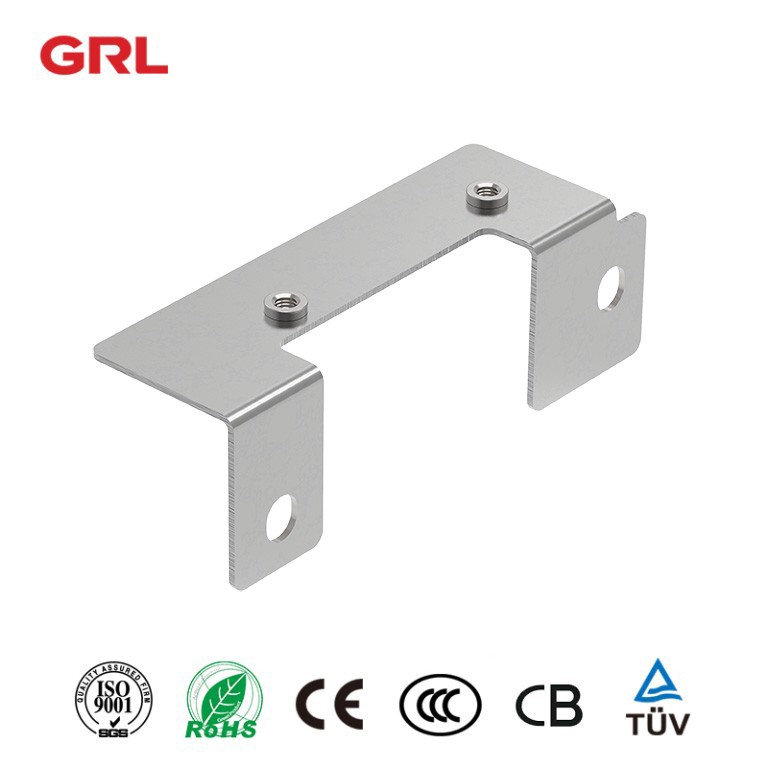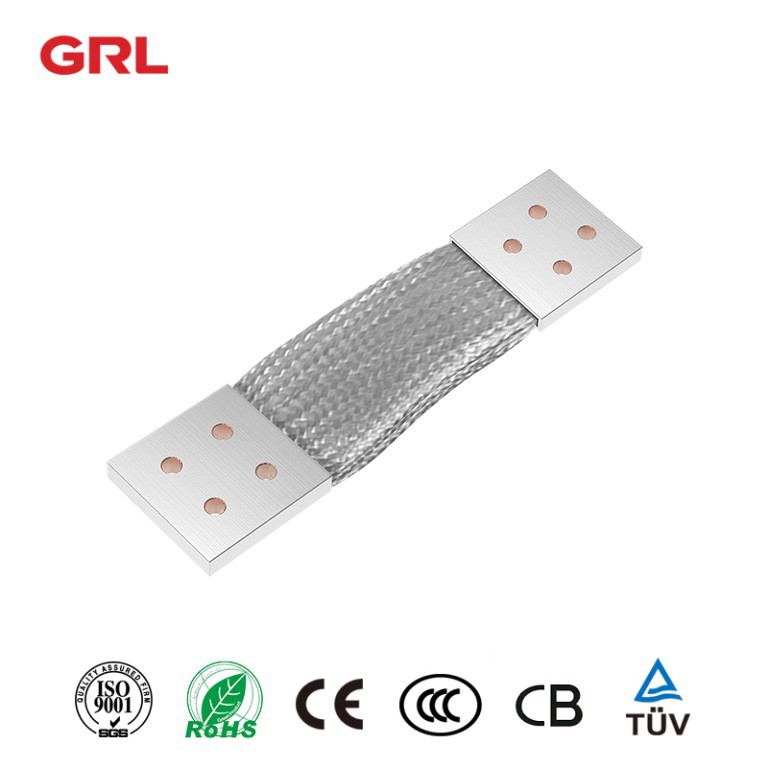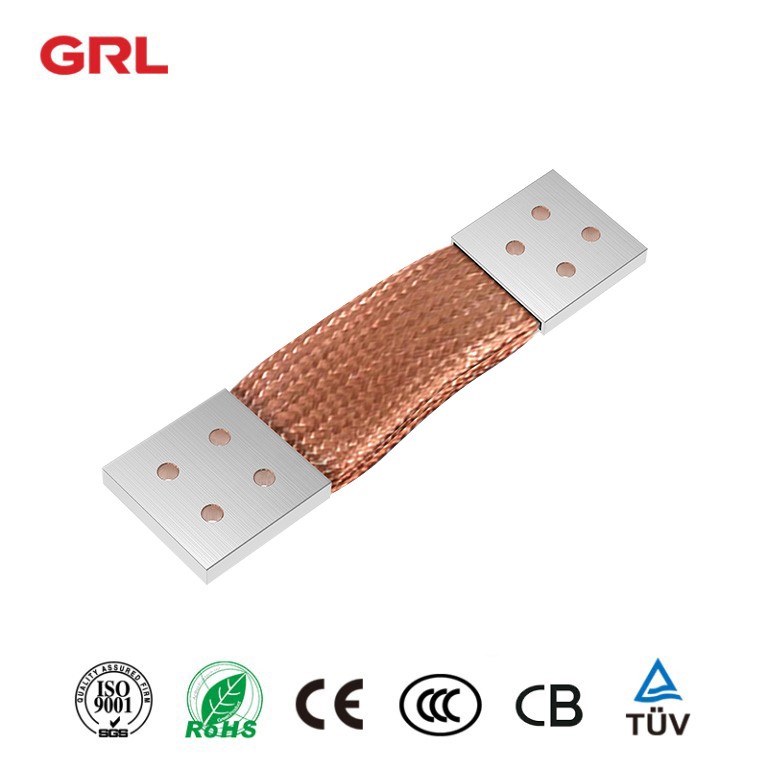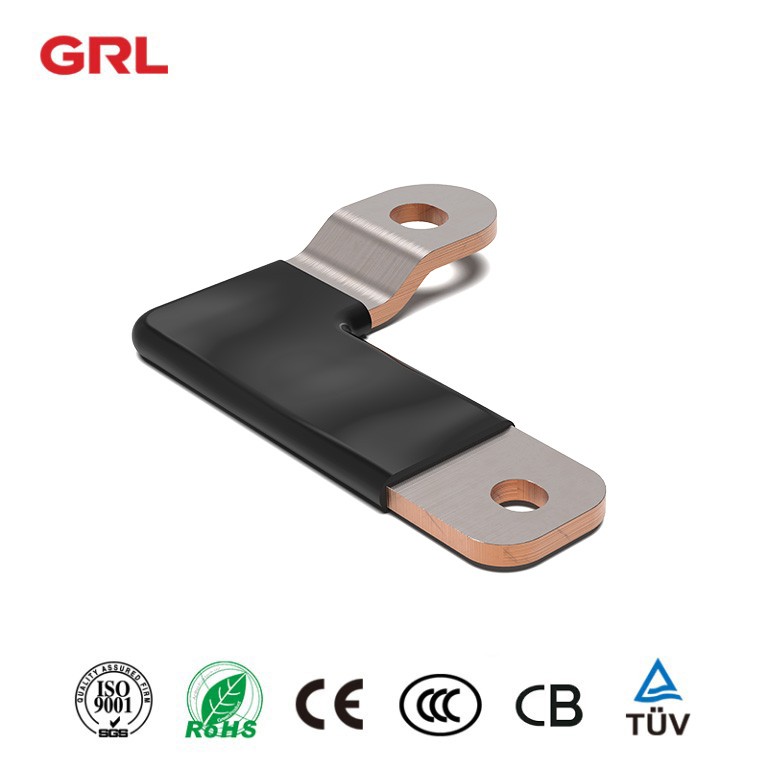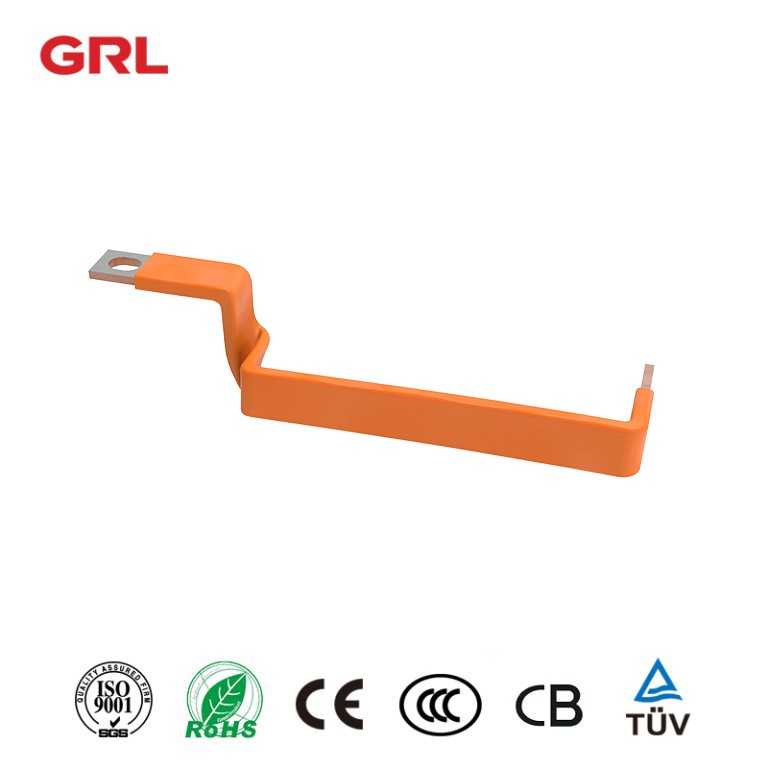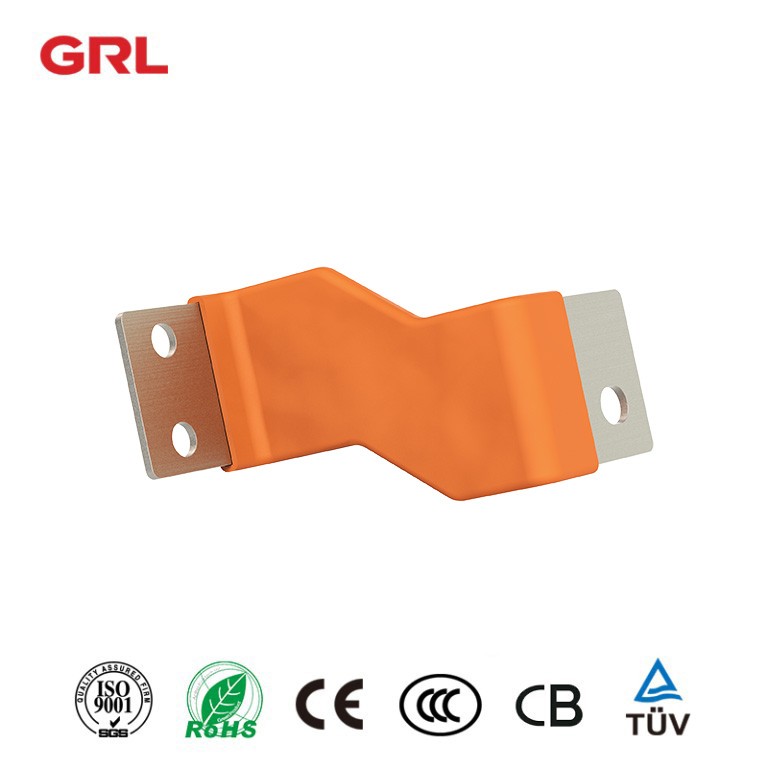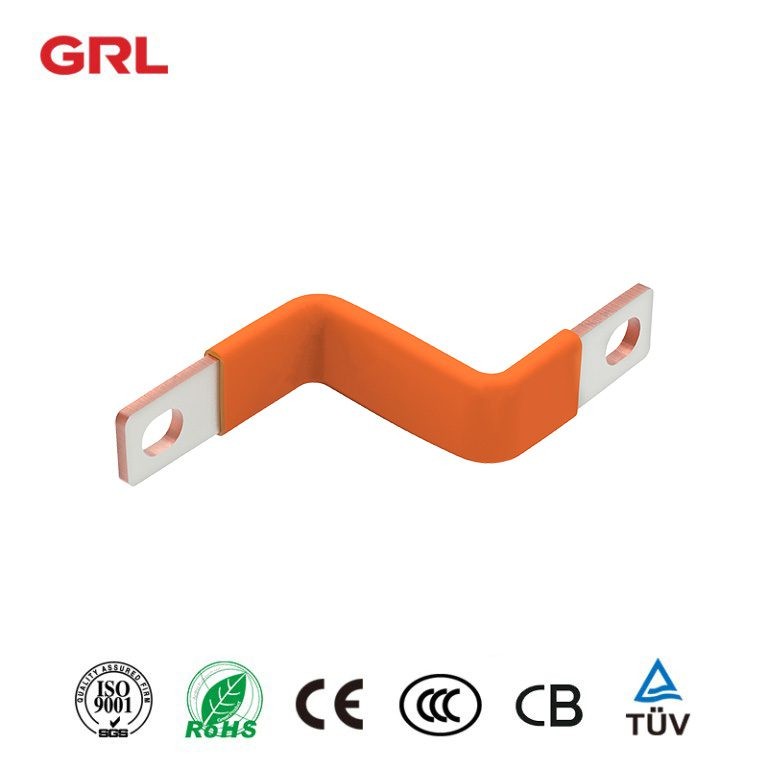What is a Copper Tinned Busbar?
A braided tinned copper busbar is a high-conductivity electrical conductor made from high-purity copper and coated with a layer of tin. This tin plating significantly enhances the copper busbar’s resistance to corrosion, oxidation, and other environmental factors. The braided construction ensures flexibility, making it suitable for complex installations while maintaining excellent electrical performance. Tinned copper busbars are widely used in power distribution systems, electrical panels, renewable energy systems, and industrial applications where both high conductivity and long-term durability are essential.
Copper Tinned Busbar Technical Parameter
| Material | T2 CopperWire, Copper Content>99.95% |
| Current Capacity | Up to 5000A (depending on application) |
| Surface Treatment | Bare Copper, Tin-Plated, Nickel-Plated,Silver-Plated |
| Single Wire Diameter | 0.05mm(American Wire Gauge AWG 44) 0.07mm(American Wire Gauge AWG 41) 0.10mm(American Wire Gauge AWG 38) 0.127mm(American Wire Gauge AWG 36) 0.15mm(Standard) 0.20mm(American Wire Gauge AWG 32) |
| Surface Treatment | Bare Copper, Tin-Plated, Nickel-Plated,Silver-Plated |
| Number of Strands | 16、24、32、36、40、48、64、96 |
| Temperature Range | -40°C to +85°C |
| Corrosion Resistance | Excellent resistance to oxidation and corrosion |
| Flexibility | Flexibility |
| Application | Power systems, electrical panels, renewable energy installations |
| Packaging Method | Packaged in coils, or on spools or wooden reels |
Copper Tinned Busbar Process
Selection and Preparation of Copper: High-purity copper is chosen for its superior conductivity and then shaped into bars.
Cleaning: The copper bars are thoroughly cleaned to remove any oxides and impurities, ensuring the tin adheres properly.
Tinning Process: The cleaned copper bars are then subjected to tinning, typically through electroplating or hot-dip tinning.
Electroplating involves passing an electric current through a tin solution with the copper busbar, depositing a layer of tin on its surface. Hot-dip tinning immerses the copper directly into molten tin, achieving a similar coating.
Finishing Touches: Following tinning, the busbars may undergo a final cleaning and smoothing process, ensuring the tin coating is even and free of defects.
Features of copper tinned busbar
Corrosion Resistance: The tin coating protects the copper from oxidizing, making it ideal for use in harsh environments.
Enhanced Solderability: Tin improves the copper’s ability to form soldered connections, facilitating easier assembly and repairs.
Durability: This added layer of protection ensures a longer operational life, reducing the need for frequent replacements.
High Conductivity: Despite the coating, the busbar maintains the high electrical conductivity characteristic of copper, ensuring efficient power distribution.
Why Choose Copper Tinned Busbars?
1. Exceptional Corrosion Resistance
The primary benefit of using tinned copper busbars is their enhanced resistance to corrosion, especially in environments prone to high humidity and exposure to harsh chemicals. The tin coating on the copper ensures that the material is less susceptible to oxidation, prolonging its service life and maintaining high conductivity over time.
2. Superior Electrical Conductivity
Copper has long been known for its excellent electrical conductivity, and when it is tinned, it retains these properties while providing additional benefits such as enhanced protection from environmental factors. The tinned coating forms a protective barrier, reducing the chance of corrosion and maintaining efficient current flow in power systems.
3. High Temperature and Mechanical Durability
Tinned copper busbars are designed to perform effectively under high thermal and mechanical stress. With excellent thermal conductivity, these busbars can operate safely within a wide temperature range and are ideal for applications where both electrical performance and mechanical stability are critical.
4. Cost-effective and Long-Lasting Solution
Compared to traditional untreated copper, tinned copper busbars offer a more affordable alternative with improved longevity. The tin coating increases the busbar’s lifespan, reducing the need for maintenance or replacements, and making them a cost-effective choice for both short-term and long-term projects.
Learn more about GRL copper busbar
Copper Tinned Busbar Applications
1、Electrical Power Distribution Systems
Our tinned copper busbars are commonly used in power distribution networks, ensuring efficient energy transfer and electrical safety in various industrial applications.
2、Substations and Power Stations
Due to their high corrosion resistance, tinned copper busbars are ideal for power substations and energy stations, where exposure to moisture, chemicals, and other corrosive elements is common.
3、Renewable Energy Systems
These busbars are also used extensively in solar and wind energy applications, providing reliable electrical connections for photovoltaic inverters, battery storage, and power generation equipment.
4、Automotive and Transportation
Copper-tinned busbars are used in electric vehicles (EVs), railway systems, and aerospace applications, offering high-performance power distribution solutions.
5、Industrial Electrical Systems
In industrial settings, tinned copper busbars are essential for maintaining high electrical reliability in machinery, automation systems, and manufacturing equipment.
Recommended Products
leave your question
GRL Electric Co., Ltd. is one of the leading companies in the Middle And High End market of low-voltage electric in China

